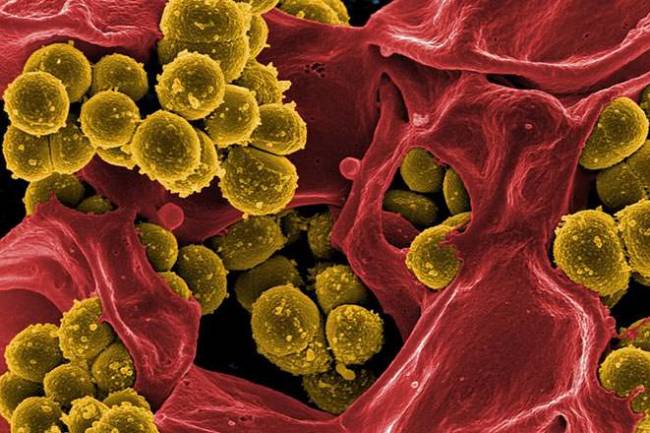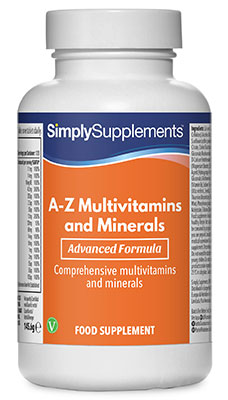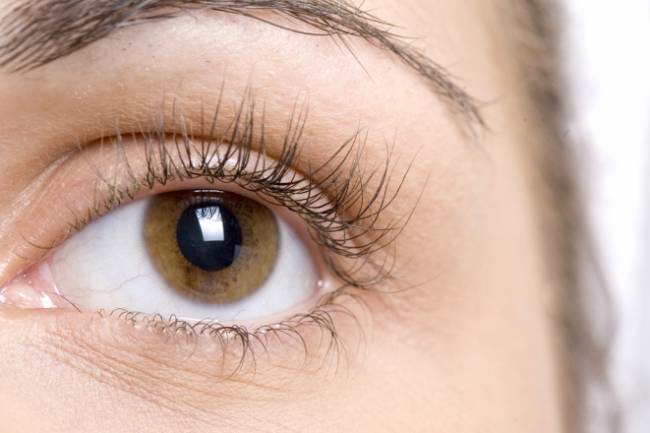How to Keep Your Immune System Healthy

Have you been getting ill more recently? Do you seem to catch every virus going around? Don't worry – help is at hand. Many of us don't realise just how easy it can be to keep our immune systems healthy with the right combination of diet and lifestyle. That's why we've put together this helpful list of ways to help support your immune system.
Increase Your Vitamin A and C Intake
When it comes to keeping your immune system healthy your diet is a great place to start. Thankfully, there are a lot of different vitamins, minerals and nutrients that are known to play roles in supporting your body's natural defensive mechanisms. Perhaps the most famous and readily available are vitamins A and C.
Vitamin A
Vitamin A, which is also known as retinol, is a fat-soluble vitamin, meaning that it is naturally stored in your body. It's found in foods like cheese, eggs, oily fish and yoghurt, and is believed by many to help support the overall health, maintenance and regulation of your immune system. In a nutritional review published in 2009, it was written that “vitamin A deficiency compromises immunity, resulting in major morbidity and mortality.”
The list of foods highlighted above are very dairy heavy, which means that people who are lactose intolerant or have chosen to adopt a diet that excludes dairy won't find them very helpful suggestions. Don't worry though, because there's another nutrient we need to talk about. Beta carotene is an organic yellow-orange coloured plant pigment that can be added to your diet through foods like carrots, red peppers, mango and apricots. When ingested, your body is able to convert beta carotene into vitamin A, offering you another group of foods with which to help look after your immunity.
A clear correlation between vitamin A deficiency and illness outbreak has been noted by scientists. In an article published in 2001 about vitamin A, infection and immune function, the authors wrote that “vitamin A deficiency impairs innate immunity by impeding normal regeneration of mucosal barriers damaged by infections.” The NHS currently recommends that every adult aged 19 to 64 should aim to get the following amount of vitamin A each day:
- Males: 0.7mg a day
- Females: 0.6mg a day
Although it's incredibly hard to get too much vitamin A, there are some side effects that you need to be aware of. It has been reported that continuous, massively excessive doses of vitamin A (like 1.5mg a day for multiple years) may cause “dizziness, nausea, headaches, skin irritation [and] pain in joints and bones.”
Vitamin C
 Vitamin C is without a doubt the most popular and well-known vitamin available, thanks to its vast availability and for its proven support of the immune system. Unlike vitamin A, vitamin C is a water-soluble vitamin, meaning that it cannot be stored by your body. In order to enjoy the health benefits provided by vitamin C, you have to make sure that you get regular daily doses through your diet. You can do this by eating foods like:
Vitamin C is without a doubt the most popular and well-known vitamin available, thanks to its vast availability and for its proven support of the immune system. Unlike vitamin A, vitamin C is a water-soluble vitamin, meaning that it cannot be stored by your body. In order to enjoy the health benefits provided by vitamin C, you have to make sure that you get regular daily doses through your diet. You can do this by eating foods like:
- Berries such as cranberries, blueberries and goji berries
- Broccoli, spinach and Brussel sprouts
- Citrus fruits like limes, lemons, grapefruit and oranges
- Peppers.
Just like vitamin A, scientific study targeting human health and the effects vitamin C is quite limited. However, there is a clear association between vitamin C deficiency and the occurrence of illness. “A vitamin C deficiency results in a reduced resistance against certain pathogens whilst a higher supply enhances several immune system parameters.” One of the main reason there's so much praise directed towards vitamin C is because it's known as a free radical scavenger.
Free radical molecules, although microscopic, can prove incredibly detrimental to your overall health and wellbeing if left to attack the body. Free radicals are different to normal molecules because instead of having an even pair of electrons, they have one lone, un-paired atom. This unpaired electron causes the free radical to try and steal from other molecules, where it can stabilise the imbalance caused by only having one electron.
Vitamin C counters free radical molecules by supplying one of its own electrons to the free radical without causing itself to become unstable. Vitamin C is known to possess antioxidant properties, which help to combat the potentially harmful effects free radicals and the process of oxidation can have on your health and immune system.
Supplements
Aside from food, a huge variety of different vitamins are available in a whole host of dietary supplements. If you struggle to add vitamin-rich foods into your diet on a daily basis, these supplements may prove to be a simple and effective way of ensuring that your body never runs out of these kinds of nutrients.
Get Enough Sleep Each Night
Everyone can appreciate the endless benefits a good night's sleep can provide for your health. Unsurprisingly, these benefits also extend to your immune system too. During a period of deep heavy sleep, your body restores, recharges and repairs itself, with some of these activities directly involving parts of the immune system. “Sleep and the circadian system exert a strong regulatory influence on immune functions.”
Not getting enough sleep each night, or being sleep deprived, not only means that your body has less time to recharge; it could also help facilitate a stress response that can hinder the performance of your immune system, increasing your likelihood of getting sick. Ensuring a good night's sleep is dependent on a lot of different factors. However, you'd be surprised at just how easy it is to lure your body into a deep sleep. Here are a few ideas that might be able to help you get a handle on your sleep schedule:
- Bath 30 minutes before going to bed – A nice warm bath can do wonders to your state of mind, which immediately puts you in a better condition to catch a few winks. What's more, the dramatic temperature change of going from a hot bath to a room-temperature bed also helps to induce a deeper sleep.
- Use aromatherapy – You can't go to bed anxious, stressed and full of meandering thoughts and expect to drift straight off to sleep. That's why a lot of people are turning to essential oils and scents to help calm their mind and induce more efficient sleep. Just like the smell of fresh air, plants and nature, a single drop of these oils underneath your pillow may be enough to relax you. Lavender scents are a particularly popular option, but be sure to choose a scent that you actually enjoy.
- Reduce the amount of light in your bedroom – Now this might sound obvious, but we can't overstate the importance a dark environment plays on your body's ability to get a beneficial night's sleep. In darker environments, your body produces the hormone melatonin, which produces signals within your body that it's time to go to sleep. The darker your bedroom is, the easier it will be for your body to drift off.
- Commit to a strict sleep schedule – Going to bed at the same time each night and waking up at a set time helps to habituate your body to the cycle of regular sleep. Eventually you're likely to find that it becomes naturally easier for you to get a good night's sleep during these times.
Maintain a Healthy Exercise Routine
 Exercise helps to support many different areas of your health, including the immune system. However, it has been noted that only a particular type of exercise offers these benefits. The wrong kind could have detrimental effects to the strength and durability of your immune system. “Moderate exercise seems to exert a protective effect, whereas repeated bouts of strenuous exercise can result in immune dysfunction.”
Exercise helps to support many different areas of your health, including the immune system. However, it has been noted that only a particular type of exercise offers these benefits. The wrong kind could have detrimental effects to the strength and durability of your immune system. “Moderate exercise seems to exert a protective effect, whereas repeated bouts of strenuous exercise can result in immune dysfunction.”
Things like weightlifting are unlikely to do your immune system any good, so it would be best to look at other activities to help support your health. In order to help deal with foreign pathogens, contaminants or harmful bacteria, your immune system uses white blood cells to destroy them. In order for these white blood cells to reach the threat in the first place, they have to travel around your body through the circulatory system.
Aerobic exercises like walking, jogging, tennis, swimming and dancing all help to get your heart pumping, which increases blood flow. Increasing your blood flow helps to make it easier for the white blood cells to reach a pathogen quicker, as well as react sooner to new threats that enter the body. Aerobic exercise also causes your body to burn energy to help fuel your muscles, which causes your temperature to rise. This makes you sweat, which in turn helps to flush out more toxins from your body, taking some pressuring off your immune system.
It is currently recommended that all adults aged 19 to 64 should be aiming to get at least 30 minutes of moderate aerobic exercise a day, equalling to 150 minutes a week. If you're looking to keep your immune system healthy using exercise, we highly recommend starting off slowly and building up to a more comprehensive and varied workout plan. If you push yourself to hard, too early, not only could you cause more harm than good, but it might also demotivate you to want to stick with it.
Remember to pick an activity that suits your level of fitness too; it's not a competition, and going from no exercise to a simple daily walk is a fantastic step in the right direction.
Stay Hygienic
Maintaining a high level of hygiene means that harmful chemicals that could cause illnesses are less likely to get deeper into your body. Particularly during the day, ensuring that you regularly wash your hands and face using bacteria-killing soaps can go a long way to protecting yourself from illness, and is a simple solution that doesn't require a lot of effort. Remember to use hot water too and wash for at least two minutes at a time to be on the safe side.
Your skin is the largest organ of the body, and is an essential part of the immune system because it's your first line of defence against harmful contaminants. However, if not properly maintained, skin cells can die and in turn go from protecting you from harm to potentially causing it. To help minimise the threat posed by the plethora of nasty substances that can build up daily on your skin, get into the habit of bathing in the evenings before you go to bed. Complement this with an antibacterial soap or shower gel and an exfoliation technique for a much deeper, beneficial clean.
Try to Limit Stress
 Occasional feelings of stress are perfectly normally, and can even be beneficial for your health. Chronic stress on the other hand can be incredibly detrimental to both your mental and physical wellbeing. The main hormone your body releases when you feel stressed is cortisol, which if constantly released into your bloodstream and allowed to accumulate, may cause your immune system to become depleted and weak.
Occasional feelings of stress are perfectly normally, and can even be beneficial for your health. Chronic stress on the other hand can be incredibly detrimental to both your mental and physical wellbeing. The main hormone your body releases when you feel stressed is cortisol, which if constantly released into your bloodstream and allowed to accumulate, may cause your immune system to become depleted and weak.
The presence of excessive and continuous cortisol in your body may cause your immune system to attack it, which can result in chronic inflammation. These efforts may allow other pathogens and toxins to much more easily infect and cause illnesses to develop. The presence of stress hormones also has the ability to suppress the number of white blood cells your body produces, meaning that your overall defence is weakened as a result.
To examine the effects of psychological stress on the immune system, a meta-analysis was conducted in 2006 that reviewed over 300 scientific articles discussing the relationship between the two. The meta-analysis methodology is commonly known as a ‘gold standard' in scientific study, due to the huge amount of information it compiles from a lot of sources covering the topic in question. The authors of this particular meta-analysis found that as feelings of stress became more chronic and prolonged in nature, “the more components of the immune system were affected in a potentially detrimental way.”
Every person is different, meaning that we all handle stress in our own unique ways. However, there does seem to be some kind of consensus of the kinds of things that may be known to help reduce stress. Try giving these a go:
- Listen to some relaxing music
- Get a good night's rest
- Commit to an intense workout like a boxercise class
- Vent your worries or concerns to your friends and family
- Find a new hobby to focus your attention on.
Summary
In truth, all of the ways we've mentioned that might be able to help keep your immune system healthy only scratch the surface of what you can do. That's why it's so important to make sure that you do your own research to find what might work best for your individual health needs and requirements. Consulting your local GP is always advised before you commit to making significant dietary or lifestyle changes, just to make sure that you're making healthy steps in the right direction that won't inadvertently cause more harm than good.
Sources:
https://onlinelibrary.wiley.com/doi/full/10.1111/j.1753-4887.1998.tb01643.x
https://www.ncbi.nlm.nih.gov/pubmed/11375434
https://www.nhs.uk/conditions/vitamins-and-minerals/vitamin-a/
https://ods.od.nih.gov/factsheets/VitaminA-HealthProfessional/
http://europepmc.org/abstract/med/19263912
https://www.ncbi.nlm.nih.gov/pmc/articles/PMC3256323/
https://www.ncbi.nlm.nih.gov/pubmed/17826186
https://www.nhs.uk/live-well/exercise/
https://www.ncbi.nlm.nih.gov/pmc/articles/PMC1361287/

 Nicole
Nicole 

























